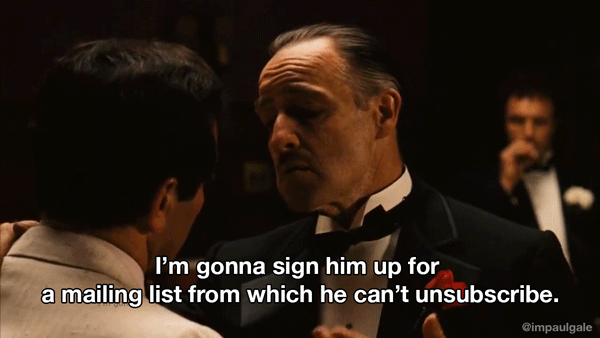I don't consider myself a lazy man.
To the displeasure of many a recent startup, I like to do stuff for myself. I like to clean my own house. I do my own laundry. If I need something from the store down the street, I go to the store down the street. If I want a Philly Cheesesteak from Philadelphia, I think "I should go to Philadelphia!" and then don't and then eat Quiznos and feel sad.
But man, do I hate shipping things. I've never really understood why. I have things sitting around my house that I've intended/promised to ship for months. I'm fully aware and appreciative of how wonderful it is that we can put a box on a truck, have it disappear for a few days, and then have it arrive on the other side of the world. It's magic. I just suck at actually doing that.
Shyp is a startup squarely aimed at my particular breed of lazy. You push a button, they show up and pack/ship your items for you, charging you just a couple bucks more than what you'd pay to ship it yourself.
If you've been paying extra close attention lately, the name "Shyp" might ring a few bells.
Earlier this week, a bunch of headlines were written about the hyper-connected author Tim Ferriss having used the new General Solicitation laws to help a startup raise $250k in 53 minutes (making him one of the first, if not the first, to utilize the change) by way of a blog post and AngelList's Syndicate program.
That startup was Shyp.
One small detail got buried as that story spread, though. Shyp didn't raise a seed round of just $250k — that $250k was just a chunk that they set aside to experiment with the new laws. They actually raised almost 9x that much, closing their seed round at $2.1M in total. I couldn't find any solid confirmation as to how exactly their entire round came together, so I dug a bit deeper. Here's what it ended up looking like, as I've pieced it together:
- Shyp raised $2.1M in total.
- $1.35M of it came from more traditional fundraising sources (Lead by Hunter Walk's Homebrew and Sherpa Ventures, backed by a bevy of Angels)
- Tim Ferriss privately raised $500k of it from his own contacts. Some of the investors in that chunk include Antonio J. Gracias (Board of Directors on both SpaceX/Tesla) and Daymond John (FUBU founder, and one of the Shark Tank sharks)
- That leaves $250K, which is what they set aside to raise through general solicitation on AngelList by way of a Tim Ferriss blog post.
So, how does Shyp actually work?
You open the Shyp app and snap a picture of the item you'd like to be sent away. This picture is sent out to Shyp's network of contracted employees (which they call "Shyp Heroes"), any of whom can then elect to pick up the package. They show up at your location, grab the item, put it in a padded bag, and take it back to be packed and shipped. If you're shipping one item, they charge you the amount that UPS or FedEx would charge, plus a $5 pickup fee. If you send two or more separate items, they waive the fee. Packaging costs are included, and each item is insured at up to $10,000 from the second it leaves your house.
Wondering how they can afford to do that? So was I.
Shyp tells me that the key there is in the volume. By shipping (hopefully) hundreds of boxes a day, they're able to ship each package at a discounted rate. They charge the end-user the retail price they'd otherwise pay anyway, and make their profit in the difference.
The economics seem challenging, to say the least. Assuming that their discount margin nets them a few bucks per package on average (it'd vary based on the size of the item and box), they've then got to pay for packaging and logistical overhead, and actually, you know, pay the people picking up the boxes. Shyp tells me their "Heroes" are paid per pickup. Unless these people are somehow doing dozens of pickups per hour, they'd need to be paid at least a buck or two per pickup to start breaking minimum wage. Shyps founders and its investors seem certain it'll all work.
During my conversations with Shyp, I mentioned Shiphawk, a TechCrunch Disrupt alumni company that, while not a direct competitor, is of a similar vein. Shiphawk acts as a sort of Kayak/Hipmunk for shipping, fetching quotes from established packing/shipping companies for people looking to ship things like art. Turns out, Shiphawk (unintentionally/unknowingly) had a bit of a role in Shyp's fundraising story. Says Shyp co-founder Jack Smith:
It's interesting that you bring up Shiphawk actually. Kevin (my co-founder) was watching TC Disrupt NYC live online earlier this year and heard [AngelList co-founder] Naval [Ravikant] critiquing Shiphawk's pitch. He said:
"I'm surprised you didn't take it one level further [and dispatch someone] to your house or to your business, grab the thing, wrap the thing, package it and take it out. Because, I know as an infrequent seller and buyer, that's the kind of service I would additionally pay for. It might be more of a differentiator than looking between a few carriers and printing a label"
Kevin emailed Naval live and said "um you just described our business, check out Shyp". Naval loved it, asked to meet, then subsequently invested.
(I've confirmed this with Naval.)
Cold calls for the win?
Shyp is currently running a small, private Beta in San Francisco, having contracted around 10 "Heroes" to start moving things around. They're doing pickups in SF only for now, pledging to roll into a second city "very soon" based on the zipcodes of users that sign up for their waiting list.



























































